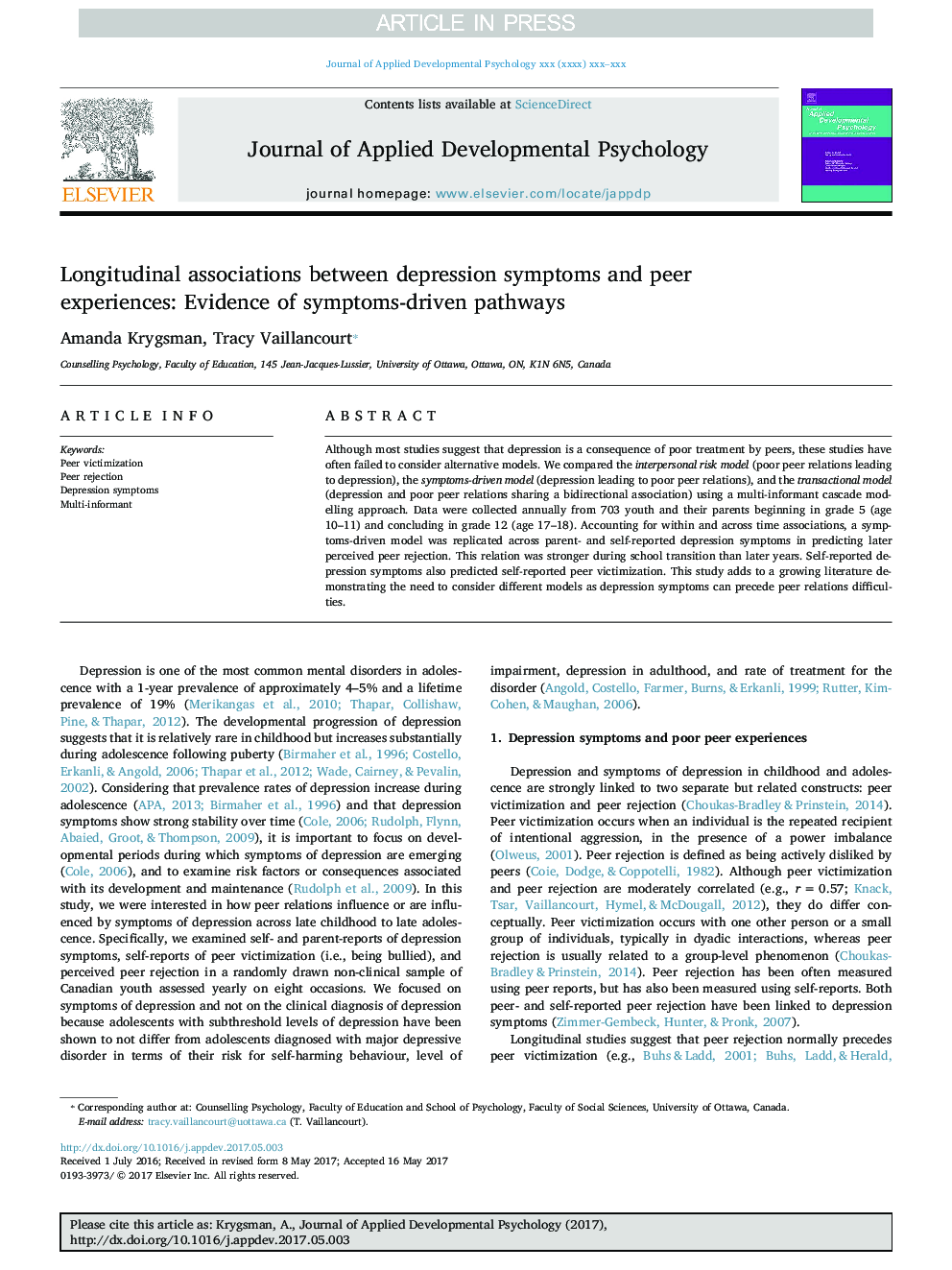| Article ID | Journal | Published Year | Pages | File Type |
|---|---|---|---|---|
| 4939111 | Journal of Applied Developmental Psychology | 2017 | 15 Pages |
Abstract
Although most studies suggest that depression is a consequence of poor treatment by peers, these studies have often failed to consider alternative models. We compared the interpersonal risk model (poor peer relations leading to depression), the symptoms-driven model (depression leading to poor peer relations), and the transactional model (depression and poor peer relations sharing a bidirectional association) using a multi-informant cascade modelling approach. Data were collected annually from 703 youth and their parents beginning in grade 5 (age 10-11) and concluding in grade 12 (age 17-18). Accounting for within and across time associations, a symptoms-driven model was replicated across parent- and self-reported depression symptoms in predicting later perceived peer rejection. This relation was stronger during school transition than later years. Self-reported depression symptoms also predicted self-reported peer victimization. This study adds to a growing literature demonstrating the need to consider different models as depression symptoms can precede peer relations difficulties.
Related Topics
Social Sciences and Humanities
Psychology
Applied Psychology
Authors
Amanda Krygsman, Tracy Vaillancourt,
